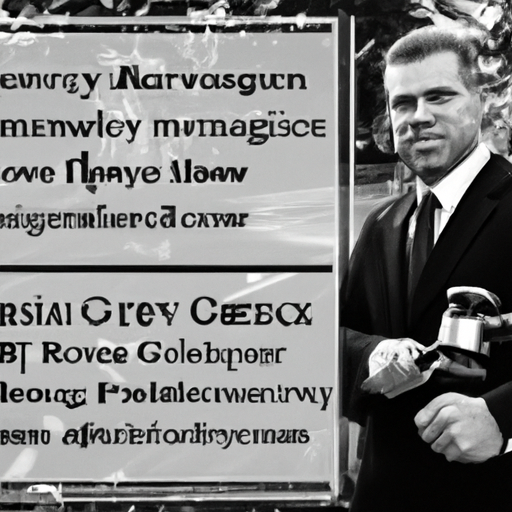If you’re considering adoption in Pleasant Grove, Utah, you’re likely facing a whirlwind of emotions and questions. With so many legal aspects to navigate, it’s vital to have the right support and guidance. In this article, we will delve into the important role an adoption lawyer plays in the process, addressing your common concerns and providing reassurance. From understanding the legal framework to ensuring all necessary steps are followed, an adoption lawyer is there to guide you every step of the way. So, let’s explore the intricacies of adoption and how a lawyer can help you achieve your dreams of expanding your family.
What is adoption?
Adoption is the legal process through which a person or couple becomes the legal parent(s) of a child who is not biologically their own. It involves making a lifelong commitment to providing a loving and stable home to a child in need. Adoption is a deeply meaningful and rewarding experience that can transform the lives of both the adoptive parents and the child.
Definition
Adoption is the legal act of permanently transferring all parental rights and responsibilities from one individual or couple to another. It establishes a legally recognized parent-child relationship, granting the adoptive parents the same rights and obligations as if the child were born to them.
Types of adoption
There are various types of adoption, including domestic adoption, international adoption, foster care adoption, and relative or kinship adoption. Domestic adoption involves adopting a child from within one’s own country, while international adoption involves adopting a child from another country. Foster care adoption occurs when a child in the foster care system becomes available for adoption, and relative or kinship adoption occurs when a family member adopts a child within their extended family.
Why do you need an adoption lawyer?
Navigating the complex legal requirements and processes involved in adoption can be overwhelming. That’s where an adoption lawyer comes in. An adoption lawyer is a legal professional who specializes in adoption law and can guide you through every step of the adoption journey. Here are some reasons why you need an adoption lawyer by your side:
Navigating legal requirements
Adoption involves complying with a multitude of legal requirements, such as background checks, home studies, and documentation. An adoption lawyer can help ensure that you meet all the legal requirements and can assist you in gathering the necessary paperwork and evidence.
Protecting your rights and interests
Adoption is a legal process that requires careful consideration of the rights and interests of all parties involved, including the adoptive parents, the birth parents, and the child. An adoption lawyer will advocate for your rights and interests throughout the adoption process, ensuring that your legal rights are protected and that the best interests of the child are upheld.
How to choose the right adoption lawyer?
Choosing the right adoption lawyer is crucial to the success and smoothness of your adoption journey. Here are some key factors to consider when selecting an adoption lawyer:
Experience and expertise
Look for an adoption lawyer with extensive experience in handling adoption cases. Adoption law is a specialized area of law, and an experienced adoption lawyer will have in-depth knowledge and understanding of the legal intricacies involved in adoption.
Specialization in adoption law
Ensure that the lawyer you choose specializes in adoption law. Adoption law is constantly evolving, and an adoption lawyer who focuses solely on adoption cases will be up-to-date with the latest legal developments and best practices.
Reputation and track record
Research the reputation and track record of the adoption lawyer you are considering. Look for reviews and testimonials from previous clients to get a sense of their experience and satisfaction with the lawyer’s services.
Client testimonials and references
Ask the adoption lawyer for client testimonials and references. Speaking with previous clients can provide valuable insights into the lawyer’s professionalism, communication skills, and success in achieving positive outcomes for their clients.
The adoption process in Pleasant Grove, Utah
If you are considering adoption in Pleasant Grove, Utah, it is important to familiarize yourself with the adoption process specific to the state. Here is an overview of the adoption process in Utah:
Overview of adoption laws in Utah
Utah has specific laws and regulations governing the adoption process. It is important to understand these laws and ensure compliance throughout your adoption journey. An adoption lawyer can explain the legal requirements in detail and guide you through the process.
Home study
Before beginning the adoption process, prospective adoptive parents in Utah are required to undergo a home study. A home study is a comprehensive assessment that evaluates the suitability and readiness of the adoptive home. It includes interviews, background checks, and home visits conducted by a licensed social worker.
Identifying an adoption agency
In Utah, prospective adoptive parents must work with a licensed adoption agency or facilitator. The adoption agency will assist in matching you with a child who is legally available for adoption and will guide you through the necessary procedures and paperwork.
Attend training sessions
Utah requires prospective adoptive parents to complete adoption training. These training sessions provide important information about adoption, including the challenges and joys of adoptive parenting, the potential impact on the child, and strategies for successful integration.
Identify a child
Once you have completed the necessary requirements, the adoption agency will work to identify a child who is a good match for your family. This may involve reviewing profiles of available children, attending meetings with birth parents, and participating in the selection process.
Placement and finalization
If a match is made, the child will be placed with you for a period of time, known as a placement period. During this time, the adoption agency will provide support and supervision. Once the placement period is successfully completed, you can proceed with the finalization of the adoption. This involves going to court, where a judge will review the case and issue a final decree of adoption.
Benefits of adopting through an adoption lawyer
Choosing to work with an adoption lawyer offers numerous benefits throughout the adoption process. Here are some advantages of adopting through an adoption lawyer:
Expert guidance
An adoption lawyer is an expert in adoption law and can provide invaluable guidance and advice at every stage of the adoption process. They can navigate the legal complexities, anticipate potential challenges, and help you make informed decisions.
Streamlined process
An adoption lawyer can streamline the adoption process by ensuring that all necessary paperwork is completed accurately and on time. They can also manage communications and negotiations with birth parents, adoption agencies, and other parties involved.
Protection during legal proceedings
Adoption can involve complex legal proceedings, such as termination of parental rights and adoption finalization hearings. An adoption lawyer will represent your interests during these proceedings and ensure that your rights are protected.
Adoption laws and regulations in Utah
Understanding the adoption laws and regulations in Utah is crucial for anyone considering adoption in the state. Here are some important legal aspects to be aware of:
Legal requirements for adoptive parents
Prospective adoptive parents in Utah must meet certain legal requirements, such as being at least 21 years old, completing a home study, and undergoing background checks. These requirements are in place to ensure the safety and well-being of the child.
Consent and relinquishment
In Utah, birth parents must legally consent to the adoption. Consent can be given either before or after the birth of the child, but it must be voluntary and informed. Once consent is given, it is generally irrevocable, except in certain limited circumstances.
Revocation period
Utah has a revocation period during which birth parents can change their minds and revoke their consent to the adoption. The length of the revocation period varies depending on the specific circumstances, but it typically ranges from 24 hours to several days.
The role of the birth father
In adoption cases where the birth father’s identity is known, he must be notified of the adoption proceedings and given the opportunity to assert his rights. If the birth father does not establish paternity or contest the adoption within a certain timeframe, his rights may be terminated.
Adoption subsidies and assistance
Utah offers adoption subsidies and assistance to help alleviate the financial burden of adoption. These subsidies may include financial support, medical assistance, and counseling services for both the child and the adoptive family.
Common legal concerns in adoption
Adoption can raise various legal concerns for prospective adoptive parents. Here are some common concerns and their corresponding considerations:
Cost of adoption
Adoption can be expensive, but there are various financial resources and support available, including adoption subsidies, grants, and tax credits. An adoption lawyer can help you explore these options and navigate the financial aspects of adoption.
Open vs. closed adoption
Deciding between an open or closed adoption is a personal choice. An open adoption allows for ongoing contact and communication between the birth parents, adoptive parents, and child, while a closed adoption maintains strict confidentiality. An adoption lawyer can provide guidance on the legal implications of these choices.
Rights of biological parents
Birth parents have legal rights that must be considered and respected throughout the adoption process. An adoption lawyer can help ensure that birth parents’ rights are properly addressed and that the adoption proceeds in accordance with the law.
Post-placement and post-adoption services
Adoption is a lifelong journey that requires ongoing support and services. Adoption agencies and organizations can provide post-placement and post-adoption support, including counseling, education, and resources. An adoption lawyer can assist in accessing these services.
Emotional aspects of adoption
Adoption is an emotional journey that can be both joyful and challenging. Here are some key emotional considerations for adoptive parents:
Preparing for the emotional journey
Adoption is a transformative experience that may elicit a range of emotions, including excitement, anxiety, and uncertainty. Taking the time to prepare emotionally and seeking support can help navigate the ups and downs of the adoption process.
Building a relationship with the child
Adoptive parents must be prepared to build a strong and loving relationship with the child. This requires patience, understanding, and a commitment to meeting the child’s unique emotional needs.
Addressing grief and loss
Adoption involves the experience of grief and loss for both the adoptive parents and the child. It is important to acknowledge and validate these emotions and seek appropriate support and counseling to navigate them.
Support and counseling resources
Various support and counseling resources are available for adoptive parents, including support groups, therapists, and adoption-specific counseling services. These resources offer a safe and empathetic space to process emotions and seek guidance.
Key considerations for stepparent adoption
Stepparent adoption is a unique form of adoption that occurs when a stepparent legally adopts their spouse’s child. Here are some key considerations for stepparent adoption:
Obtaining consent from the noncustodial parent
In stepparent adoption, the noncustodial parent’s consent is generally required. If the noncustodial parent is unwilling to provide consent, it may be possible to seek the termination of their parental rights through legal proceedings.
Termination of parental rights
Terminating the parental rights of the noncustodial parent is a complex legal process that requires strong evidence and adherence to legal requirements. An adoption lawyer can guide you through this process and advocate for the best interests of the child.
Effect on child custody and visitation
Stepparent adoption can impact child custody and visitation arrangements. It is important to consider the potential implications on the child’s relationship with the noncustodial parent and to consult with an adoption lawyer to understand the legal ramifications.
Involvement of the biological parent
The involvement of the biological parent in the child’s life before and after adoption can vary depending on the specific circumstances and the relationship between the parties involved. An adoption lawyer can help navigate these complexities and establish clear legal boundaries.
Frequently Asked Questions
How long does the adoption process typically take?
The length of the adoption process can vary depending on several factors, including the type of adoption, the specific circumstances of the case, and the state in which the adoption is taking place. On average, the process can take anywhere from several months to a few years.
What are the costs associated with adoption?
The costs associated with adoption can vary significantly depending on the type of adoption and the specific circumstances. Expenses may include home study fees, agency fees, legal fees, travel expenses, and ongoing post-adoption costs. It is important to consult with an adoption lawyer to understand the financial implications of adoption.
Can same-sex couples adopt in Pleasant Grove, Utah?
Yes, same-sex couples can adopt in Pleasant Grove, Utah. Utah law prohibits discrimination based on sexual orientation in adoption proceedings. Same-sex couples have the same rights and legal protections as opposite-sex couples when it comes to adoption.
In conclusion, adoption is a profound and life-changing experience that requires careful navigation of legal requirements, emotional considerations, and practical steps. By seeking the guidance of an experienced adoption lawyer, you can ensure that your adoption journey is smooth, legally compliant, and ultimately successful. Contact our adoption lawyer in Pleasant Grove, Utah, to learn more and take the next steps in your adoption journey.
Note: The content provided here is for informational purposes only and should not be construed as legal advice. Consult with an adoption lawyer for personalized guidance and advice specific to your situation.
FAQs:
-
How long does the adoption process typically take? The length of the adoption process can vary depending on several factors, including the type of adoption, the specific circumstances of the case, and the state in which the adoption is taking place. On average, the process can take anywhere from several months to a few years.
-
What are the costs associated with adoption? The costs associated with adoption can vary significantly depending on the type of adoption and the specific circumstances. Expenses may include home study fees, agency fees, legal fees, travel expenses, and ongoing post-adoption costs. It is important to consult with an adoption lawyer to understand the financial implications of adoption.
-
Can same-sex couples adopt in Pleasant Grove, Utah? Yes, same-sex couples can adopt in Pleasant Grove, Utah. Utah law prohibits discrimination based on sexual orientation in adoption proceedings. Same-sex couples have the same rights and legal protections as opposite-sex couples when it comes to adoption.










































